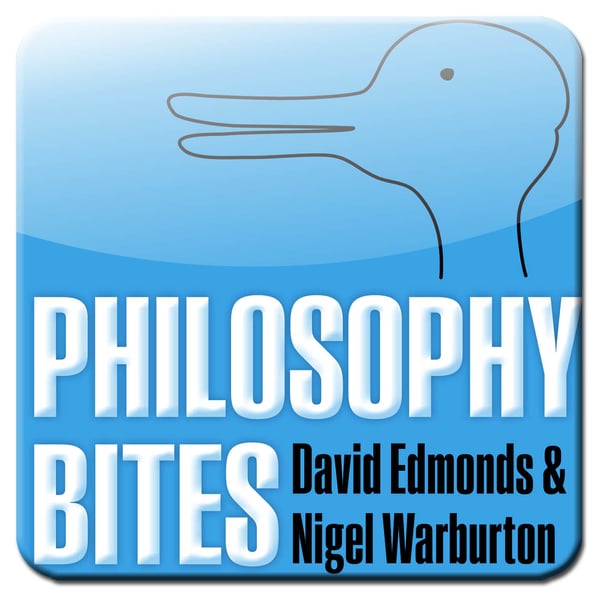Aaron Ridley on Nietzsche on Art and Truth
Philosophy Bites
Nigel Warburton
4.6 • 2K Ratings
🗓️ 16 August 2008
⏱️ 16 minutes
🧾️ Download transcript
Summary
Transcript
Click on a timestamp to play from that location
| 0:00.0 | This is that it's philosophy bites with me David Edmonds and me Nigel Warburton. |
| 0:07.0 | Philosophy bites is available at www |
| 0:09.6 | philosophy bites.com. |
| 0:11.2 | Does art teach us truths and is that its purpose? Friedrich Nietzsche was, by critical |
| 0:17.7 | consensus, a tin-eared composer, and by universal consensus a Virtuozo writer. Nietzsche took art seriously. |
| 0:26.6 | Until they had a massive falling out he was a close friend of Richard Vardners. |
| 0:31.7 | For Nietzsche, the function of art, of music and theatre, was to give us a hint of a truth, |
| 0:38.0 | the truth that the world was chaotic and meaningless. But equally, art had to shield us from this dreadful reality. |
| 0:45.1 | Aaron Ridley is a Nietzschean scholar. |
| 0:47.6 | Aaron Ridley, welcome to philosophy, Bites. |
| 0:51.0 | Hello, Michael. |
| 0:52.0 | We're going to focus on Nietzsche and particularly Nietzsche's ideas about art and truth. |
| 0:57.8 | Could you just say a little bit about Nietzsche's relationship to art? |
| 1:01.3 | Well Nietzsche was arguably the most art obsessed philosopher there's |
| 1:05.2 | been. Throughout his life he regarded himself as a serious poet. He also regarded |
| 1:09.2 | himself as a serious composer, the actual evidence of his own compositions to the |
| 1:13.6 | contrary notwithstanding, and assigned throughout a really very significant |
| 1:18.8 | place to art. He was serious about art. And in his first book, The Birth of Tragedy, |
| 1:24.6 | he focused in on the art of Tragedy, |
| 1:26.9 | but it illuminated further things about art and truth. |
| 1:30.3 | Well, Nietzsche wrote the birth of tragedy very much under the spell of Schopenhauer, who had thought that the world was an utterly vile, ghastly ghastly place, and if one really grasped the nature of it, you would see that the whole thing was a terrible mistake, that existence |
| 1:44.5 | itself was a terrible mistake. |
... |
Please login to see the full transcript.
Disclaimer: The podcast and artwork embedded on this page are from Nigel Warburton, and are the property of its owner and not affiliated with or endorsed by Tapesearch.
Generated transcripts are the property of Nigel Warburton and are distributed freely under the Fair Use doctrine. Transcripts generated by Tapesearch are not guaranteed to be accurate.
Copyright © Tapesearch 2025.

